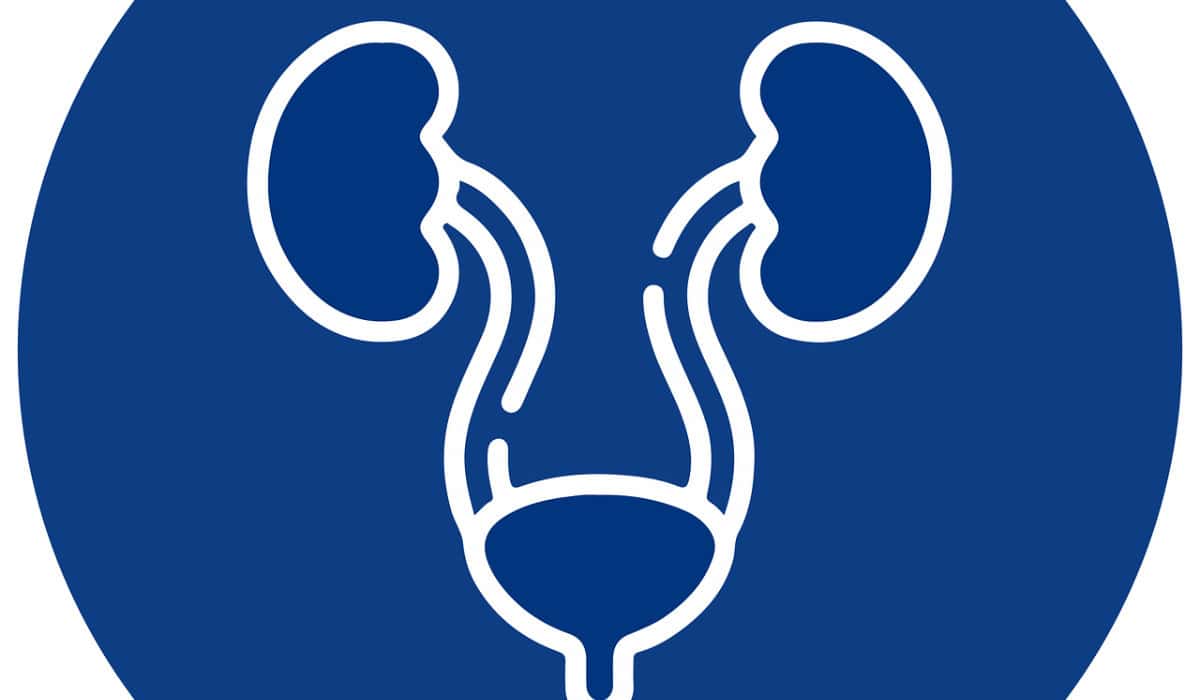A Comprehensive Guide
The urinary system is a key part of your body, responsible for cleaning your blood and managing waste. It’s fascinating how this system works to keep you healthy. By understanding its structure and function, you can appreciate the vital role it plays in your overall well-being. This guide aims to shed light on the urinary system’s complexities in an easy-to-understand manner, helping you to understand its importance fully.
Learning about the urinary system is not just for students or medical professionals. Everyone can benefit from knowing how their body works, especially when it comes to eliminating waste and excess fluids. This knowledge can lead to healthier lifestyle choices and prompt medical attention when needed. Let’s dive into the world of the urinary system and explore how it keeps our bodies in balance.
Introduction to the Urinary System
The urinary system is your body’s way of removing waste and excess fluids. It’s like a sophisticated waste management system that ensures your body doesn’t accumulate harmful substances.
The Essential Role of the Urinary System
The bladder and urethra play critical roles in removing waste and excess fluids from your body. This process is essential for maintaining your health and preventing complications.
Understanding the Function of the Urinary System
The parts of the urinary system work together to filter out waste from your blood. Each part has a specific role in ensuring that waste and excess fluids are efficiently removed from your body. By understanding how these parts operate, you can better appreciate the system’s complexity and importance.
Anatomy of the Urinary System
In the female urinary system, the anatomy is designed to efficiently remove waste while minimizing the risk of infection. This design is crucial for overall health and functionality.
Urinary System Parts: From Kidneys to Bladder
The urinary system includes several parts, such as the kidneys, ureters, bladder, and urethra. The kidneys filter your blood, removing waste and excess fluids. These wastes are then transported to the bladder and eventually leave your body through your urethra. Understanding these parts can help you visualize how the urinary system maintains your body’s internal balance.
Functions and Importance
The urinary system’s function goes beyond just eliminating waste; it’s integral in maintaining homeostasis. Blood enters the kidneys, where it’s filtered, and the kidneys filter your blood, balancing electrolytes and water levels. Finally, waste leaves your body through your urethra, completing the cleansing process. This complex process is vital for your health and underscores the importance of the urinary system.
How the Urinary System Maintains Homeostasis
The bladder and urethra contribute significantly to removing waste and excess fluids, thus maintaining the body’s internal balance. This process is crucial for sustaining life and preventing disease.
The Process of Filtering Blood and Removing Waste
Blood enters the kidneys, where it undergoes filtration. During this process, kidneys filter your blood, separating waste and excess water from useful substances. This filtered waste is then transported to the bladder and leaves the body through your urethra. This efficient process is essential for keeping your body clean and functioning properly.
Common Disorders of the Urinary System
Disorders like urinary incontinence and chronic kidney disease can significantly impact quality of life. In the United States, these conditions are prevalent, affecting millions of individuals. Awareness and understanding of these disorders are crucial for timely diagnosis and treatment.
Identifying Symptoms of Urinary Tract Conditions
Recognizing the early signs of urinary tract issues can lead to quicker diagnoses and more effective treatments. Symptoms can vary widely, making it important to pay attention to your body’s signals.
When to Be Concerned: Recognizing Warning Signs
If you notice changes in your urinary habits or experience discomfort, it could indicate a problem. Symptoms like pain during urination, frequent urges to urinate, or changes in urine color and smell are warning signs that shouldn’t be ignored. Prompt consultation with a healthcare provider can lead to early detection and treatment of potential urinary system disorders.
Overview of Kidney Stones
Kidney stones are hard deposits that form inside your kidneys, causing severe pain as they pass through the urinary tract. Understanding how they develop is the first step in prevention and treatment.
Causes and Prevention of Kidney Stones
Kidney stones form when certain substances in urine, like calcium and uric acid, crystallize. Staying hydrated and making dietary adjustments can help prevent the formation of these painful stones. Recognizing the factors that contribute to kidney stone development is crucial for implementing effective prevention strategies.
Navigating Kidney Disease
Chronic kidney disease and kidney failure are serious conditions that can lead to significant health issues. Managing blood sugar and blood pressure levels is essential in reducing the risk of kidney disease. In some cases, a kidney transplant may be necessary to replace damaged kidney tissue and restore function.
Understanding the Impact and Management of Kidney Disease
Chronic kidney disease affects how your kidneys function, making it tough for them to filter blood properly. Recognizing risk factors like high blood pressure and diabetes is key. With proper management, including diet changes and medication, you can control the impact of kidney disease and keep your kidneys healthier for longer.
Challenges in Urinary Retention and Incontinence
Urinary retention makes it hard to empty your bladder, while incontinence means losing control over when you urinate. Both conditions can be embarrassing but are manageable with the right care.
Approaches to Managing Prostate Problems
When the prostate enlarges, it can squeeze the urethra, making urination difficult. Treating prostate issues often involves medications or surgeries to ease these symptoms, ensuring the urethra passes urine more freely.
Diagnostic Approaches
Modern medicine offers various ways to check on your urinary system’s health, from simple urine tests to more complex imaging studies. These tools help catch problems early, keeping you healthier.
Tests for Checking Urinary System Health
Giving a urine sample is a common first step to check for signs of infection or other issues that might be affecting your urinary system.
How Kidney Health Checks Can Prevent Complications
Regular kidney health checks, including blood tests and urine tests, can spot problems early. This means you can get treatment sooner, preventing more serious complications from developing.
Daily Care and Prevention
Maintaining a healthy urinary system is easier with a few key habits, like staying hydrated and practicing pelvic floor exercises.
Strategies for Maintaining a Healthy Urinary System
To keep your urinary system healthy, drink plenty of water, and engage in pelvic floor exercises like Kegel exercises. These practices can help prevent kidney stones and urinary incontinence, promoting a healthy lifestyle.
Dietary and Lifestyle Adjustments for Urinary Wellness
Making smart food choices and living an active life can strengthen the bladder and urethra. This includes consuming plenty of fruits and vegetables, limiting salt and caffeine, and quitting smoking to support your urinary wellness.
When to Consult a Healthcare Professional
If you notice any unusual symptoms, it’s important to talk to health professionals. They can provide advice and treatment to keep minor issues from becoming bigger problems.
Recognizing the Signs That It’s Time to See Your Doctor
Don’t ignore changes in your urination patterns, pain, or unusual symptoms. These could be signs that you need to consult your doctor for a check-up to ensure everything is okay with your urinary system.
Understanding Urinary Tract Infections (UTIs)
UTIs are infections in any part of your urinary system, from the kidneys to your bladder. They happen when bacteria enter and grow. Drinking plenty of water and practicing good hygiene can help keep your bladder health in check and prevent these infections.
Prevention and Treatment of UTIs
Preventing UTIs can sometimes involve managing health issues that affect bladder control, such as spinal cord injuries. Treatment often includes antibiotics to clear the infection.
Why UTIs Occur and How to Avoid Them
UTIs often start when urine stays in the bladder too long, allowing bacteria to grow. Drinking plenty of fluids, urinating after sex, and wiping from front to back can help prevent them.
The Impact of Urinary System Conditions on Overall Health
Problems with the bladder and urethra or other parts of your urinary tract can affect your overall health. Staying on top of urinary health helps keep your entire body working well, so don’t overlook any symptoms or changes.
Connecting Kidney Health to General Well-being
When your kidneys work well, your whole body feels the benefit. These organs play a crucial role in filtering waste from your blood, controlling blood pressure, and making sure your bones stay healthy. If kidney problems start, you might face an increased risk of high blood pressure and weak bones, which shows just how connected your kidney health is to your overall well-being. Keeping your kidneys healthy helps your body stay in balance and keeps you feeling good.
A Future Without Urinary Problems
Imagine a world where urinary incontinence and bladder control issues are a thing of the past. Advances in understanding the pelvic floor muscles and how they support bladder control are leading to better treatments. In the United States alone, millions could regain control over their urine stream, significantly improving their quality of life. The future looks bright as research continues to bring hope to those struggling with these common but often hidden challenges.
Innovations in the Treatment of Urinary System Conditions
Recent breakthroughs focus on the bladder and urethra, key parts of your urinary tract. These innovations promise more effective and less invasive treatments, making it easier for patients to find relief from their symptoms and improve their quality of life.
The Role of Research in Advancing Urinary Health Care
Research is the backbone of progress in urinary health care. Scientists are working hard to uncover new ways to treat conditions like kidney stones and urinary tract infections. By understanding how the body removes waste and maintains a delicate balance, they are developing treatments that are more targeted and have fewer side effects. This work is vital for improving patient outcomes and helping everyone enjoy better urinary health.
Final Thoughts: Embracing Urinary Health
Urinary health is a key part of your overall wellness. By understanding how your urinary system works, from the kidneys to the bladder, and how it removes waste from your body, you can take steps to keep it healthy. Remember, if you ever notice anything odd, like a change in your urine stream or an urge to urinate more often, it’s important to talk to a doctor. Taking care of your urinary system helps keep your whole body running smoothly.
Key Takeaways for a Healthy Urinary System
To keep your urinary system healthy, drink plenty of water and limit your alcohol intake. Eating a balanced diet helps prevent kidney stones, and staying active supports the health of your urinary system. Remember, the urinary system organs, including the kidneys, bladder, and the tube that carries urine, play vital roles in removing liquid waste from your body. By taking care of these organs, you help maintain your body’s acid-base balance and ensure your blood is clean and healthy. If you experience any signs of urinary tract obstruction or changes in your bladder control, it’s important to see a healthcare professional. Early detection and treatment of issues like kidney cancer or bladder cancer can make a significant difference in your overall health. Lastly, never underestimate the power of research and innovation in advancing the care and treatment of urinary system conditions.



